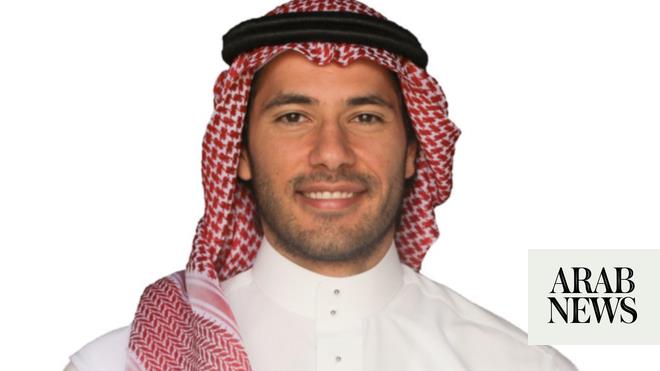
The unassuming Botswanan, 21, was one of the standout performers in Paris this year, becoming the first African to win the men’s 200m and silver in the 4x400m relay
As a sign of his new-found status, Tebogo is one of two finalists for the men’s track athlete of the year award, along with Norway’s Jakob Ingebrigtsen
LONDON: After upstaging powerhouses the US and Jamaica to win a rare Olympic sprint gold for Africa, Letsile Tebogo aims to unleash the “deadly” untapped potential of athletes from the continent.
For the latest updates, follow us @ArabNewsSport
The unassuming Botswanan, 21, was one of the standout performers in Paris this year, becoming the first African to win the men’s 200m and silver in the 4x400m relay.
Botswana’s first Olympic gold medalist in any sport, he ran an African 200m record of 19.46 seconds, placing him fifth on the world all-time list and beating US star Noah Lyles into third place.
It came just months after he suffered the trauma of losing his mother, Seratiwa, who died in May — he credits her as being the “powerhouse, the drive” behind his success.
As a sign of his new-found status, Tebogo is one of two finalists for the men’s track athlete of the year award, along with Norway’s Jakob Ingebrigtsen.
Since the end of a successful Diamond League season he has been spending his downtime farming in Botswana but in the coming weeks he will start building toward the next season.
“The Olympics have taken me to a different level,” Tebogo told AFP on a chilly autumnal morning in London. “It has opened a lot of doors for me.
“It has created more empowerment for the youth back in the country, back in the African continent, because now a lot of youth want to engage in sporting activities, not just athletics, because I’ve shown them that anything is possible.”
Tebogo is building on the legacy of Frankie Fredericks, considered the trailblazer for modern African sprinters.
But he has already gone a step further than the Namibian, who had to settle for silver medals at the 1992 and 1996 Olympics, and he hopes his success can inspire others.
“I believe there’s true potential in Africa, just that we don’t have as many resources as other countries,” he said.
“So if we have the resources, then Africa could be one of the deadliest continents.”
Tebogo wants public money to go toward training coaches, improving facilities and stadiums to encourage young athletes.
“Once you find a gem in Africa, you don’t know when you’re going to find the next gem,” he said. “Because we have the talent, but we don’t have the coaches.
“That could help us nurture that talent into something very big.”
Botswana erupted in celebration after Tebogo’s success in Paris, with then president Mokgweetsi Masisi declaring a half-day public holiday, and he was given two houses by the government.
But he does not fit the usual mold of a preening, extroverted sprint star — he is not interested in emulating Lyles’s showy entrance to the track, previously describing his US rival as “arrogant” and “loud.”
“I mean, I just let my legs do the talking because I’m a more reserved person,” said Tebogo, who was making a flying visit to London for an event with his sponsor, law firm DLA Piper Africa.
“So if he does what he does, because that’s him, we have to accept the way he is and then just move on.”
He is less than impressed with the focus of the latest episodes of the Netflix show “Sprint,” tweeting that it is an “American show,” too obsessed with US stars.
Tebogo, who announced himself on the global stage with 100m silver and 200m bronze at the 2023 world championships in Budapest, admits his new-found fame brings with it positives and negatives.
“The positive is that you get recognized everywhere you go,” he said. “Now you can open doors for yourself with your name.
“And then the negative side of being famous, I believe, is that you’re not a free human being. Everybody’s looking up to you, every step that you take, everybody’s looking if you’re stepping on the right stone, you’re not going to fall down.”
The Botswanan, a keen footballer as a youngster who decided to focus on athletics relatively late, admits he is not yet the finished article but believes things will “click” in 2025.
“We haven’t sat down with the coach and the team to discuss our plans for the 2025 season, but I believe one is going to be making Africa proud,” he said.
“That’s the first one that will never change, no matter what year, what season we get into.”












